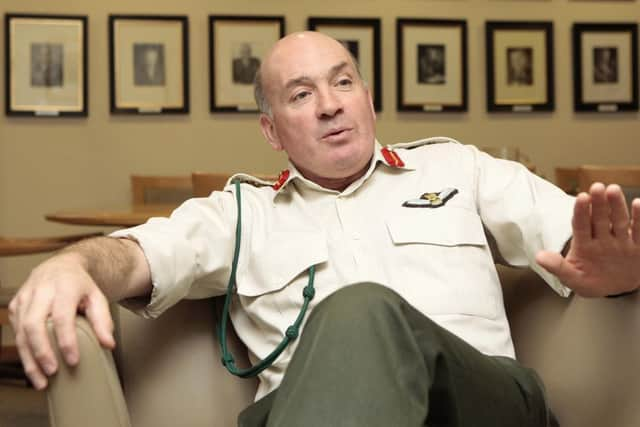Ex-head of Army: I was interviewed by PSNI over Troubles killing
and live on Freeview channel 276
Lord Dannatt, writing in the Daily Telegraph, hit out at what he called the “very uneven playing field” when it comes to investigations of killings during the Troubles.
He revealed that investigators interviewed him in the hours before his official retirement as chief of the general staff about “the killing of a young man in Belfast some 36 years before”.
Advertisement
Hide AdAdvertisement
Hide AdGeneral Sir Lord Dannat wrote: “Some soldiers now stand liable for further investigation and in fear of a knock on the door.


“I, too, have had the knock. On my last day as Chief of the General Staff, on August 28 2009, the final scheduled appointment in my diary before I left the Ministry of Defence for the last time in uniform was with two investigators from the Police Service of Northern Ireland’s (PSNI) Historical Enquiries Team.”
He continued: “They had travelled from the Province to London to quiz me about the killing of a young man in Belfast some 36 years before.
“In as polite a way as possible I explained that if the soldier standing next to you has just been shot dead, that might just explain a return of fire from my soldiers.”
Advertisement
Hide AdAdvertisement
Hide AdLord Dannatt also wrote that there were “troubling issues” with high-profile investigations into the involvement of service personnel in killings during the Troubles.
“First, while the Army kept extremely good operational records, the terrorists did not,” he wrote. “This makes a very uneven playing field on which to conduct these retrospective investigations.
“Second, all allegations were investigated by service and civil police at the time, which begs the question why, 30 or 40 years later, revisiting whatever evidence may still exist is likely to bring any greater clarity.”
He continued: “Third, of the 2,547 cases referred to the new PSNI Legacy Investigation Board, 2,265 are deemed to be terrorist cases and only 282 — about 10 per cent — are deemed to be British Army/Royal Ulster Constabulary cases.
Advertisement
Hide AdAdvertisement
Hide Ad“The 10 per cent attributable to the security forces were deaths brought about by troops and policemen doing their lawful duty.
“The Army is now caught in the crossfire between the Sinn Féin nationalist agenda and the DUP’s insistence on bringing predominantly nationalist terrorists to justice.”
Sir General Lord Dannatt added: “The peace process (in Northern Ireland) has brought better times but the continuation of that peace cannot be at the expense of soldiers’ lives ruined.”